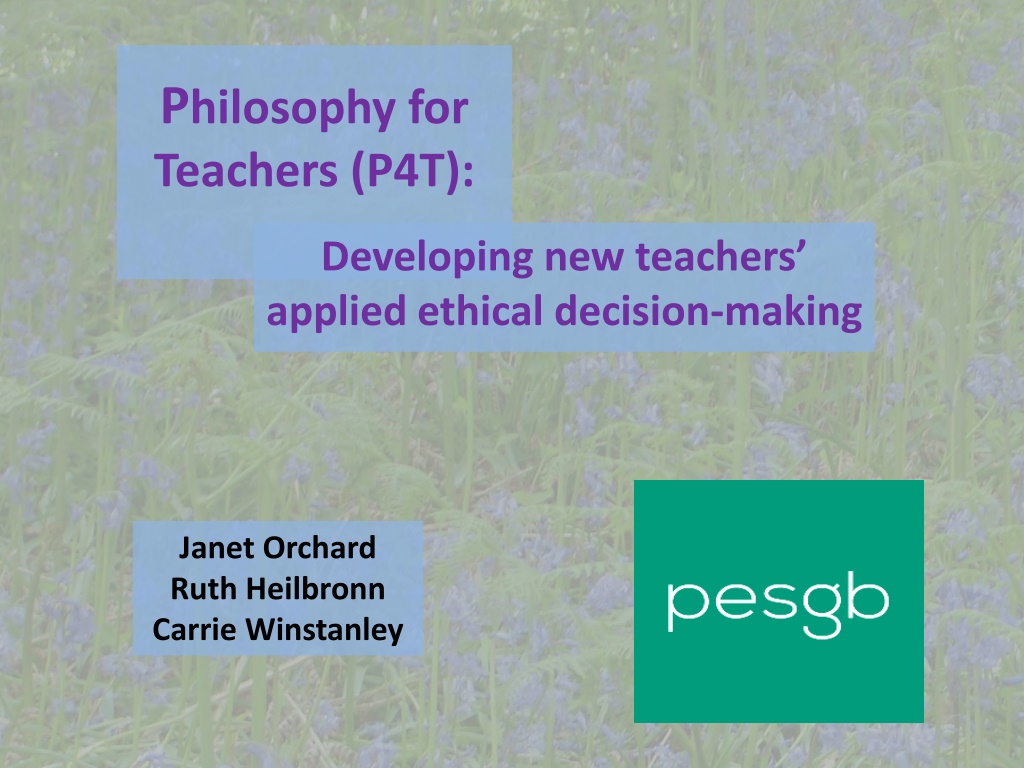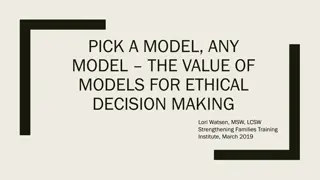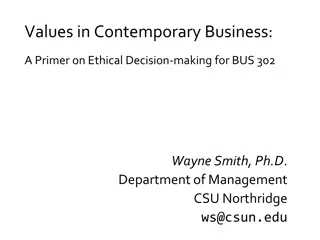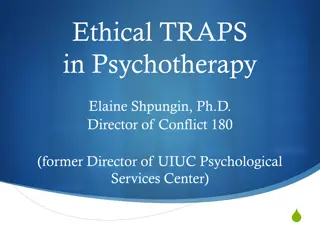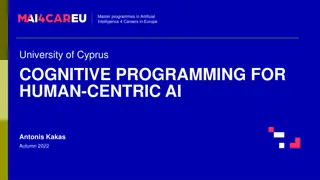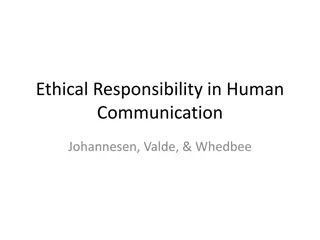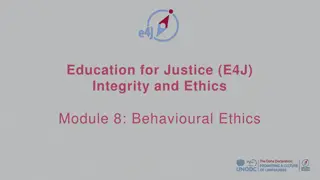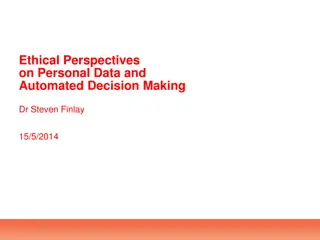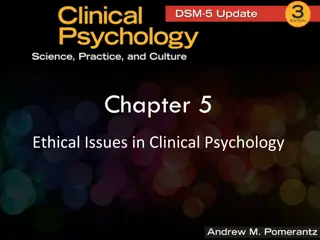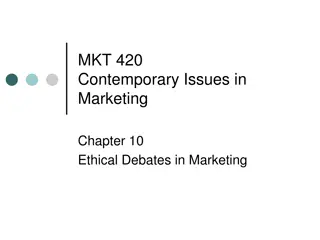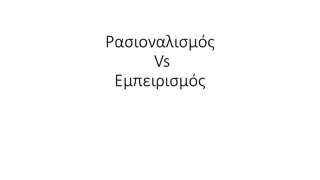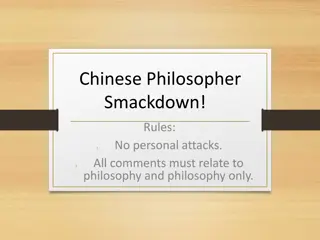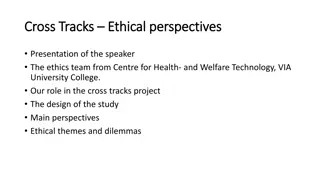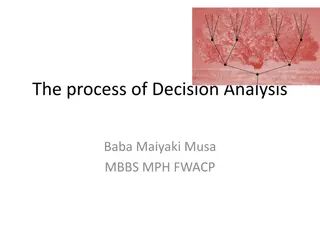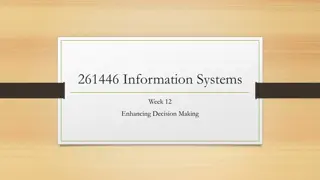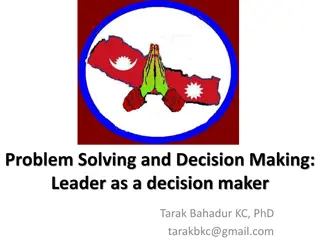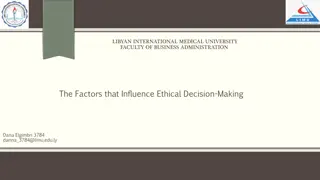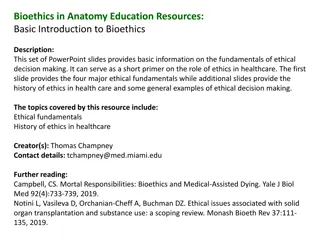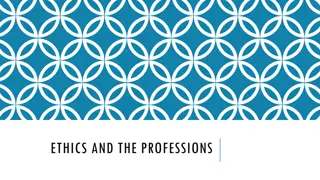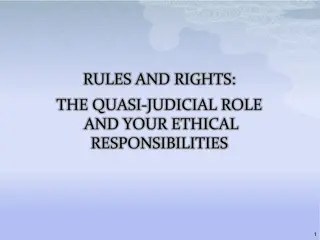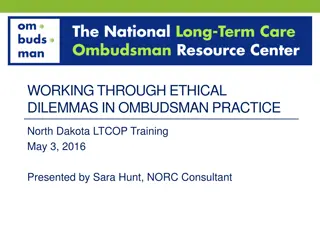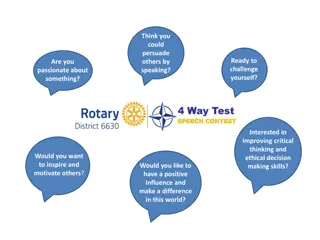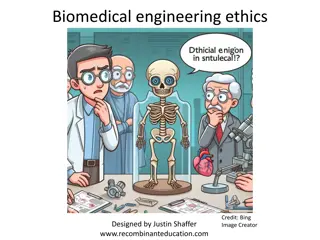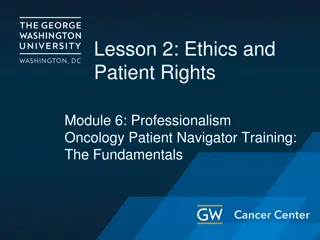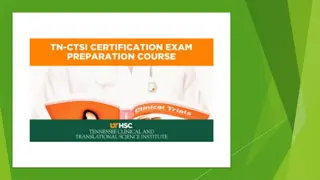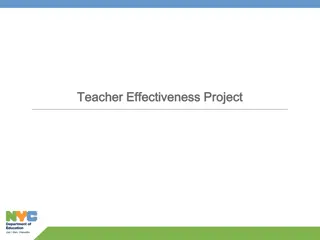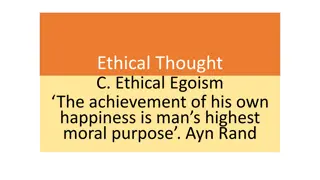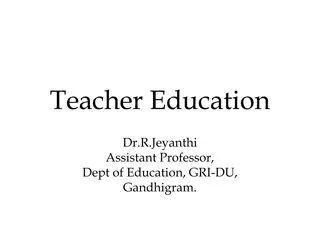Ethical Decision-Making in Teacher Education: A Philosophical Approach
Developing new teachers' ethical decision-making skills is crucial in maintaining positive relationships with students and exercising appropriate authority. Through dialogic workshops and community learning, educators enhance their professional judgment within a safe emotional space, encouraging rigorous and disciplined thinking to tackle big ethical concepts.
Download Presentation

Please find below an Image/Link to download the presentation.
The content on the website is provided AS IS for your information and personal use only. It may not be sold, licensed, or shared on other websites without obtaining consent from the author. Download presentation by click this link. If you encounter any issues during the download, it is possible that the publisher has removed the file from their server.
E N D
Presentation Transcript
Philosophy for Teachers (P4T): Developing new teachers applied ethical decision-making Janet Orchard Ruth Heilbronn Carrie Winstanley
Ethical deliberation - a marginalised area in teacher education How and when do trainees learn this requirement? maintain good relationships with pupils, exercise appropriate authority, and act decisively when necessary (DfE, 2011:7) Developing professional judgement as a professional learning community within a safe emotional space
Project evolving through work with teacher educators Residential workshops adopting a dialogic approach, using student-generated narratives (rather than set piece role-plays)
Space and time Charney Manor 24-hour residential in a calm, shared place allowing participants to escape from the 'busyness' in school
Participants: - students and tutors - philosophers of education (gadflies/ stingrays) - trained and experienced facilitator P4T Communities of Enquiry - Inclusive, non-judgemental teaching (Haynes et al, 2015)
Tackling big ethical concepts, such as fairness, respect, trust and equity Stretching concepts with slow and deliberate interrogation of ideas through debate
students listen to one another with respect, build on one another s ideas, challenge one another to supply reasons for otherwise unsupported opinions, assist each other in drawing inferences from what has been said, and seek to identify one another s assumptions. Matthew Lipman (1991:15)
Logical and critical thinking Participants enquire, build hypotheses, consider consequences etc Dialogue and thinking should be rigorous and disciplined using criteria and thus self-correction
- demand and need for the activity - success of the pedagogic model - fusion of theory and practice - ontological issues in ITE Key outcomes Students particularly valued the quality of the experience and the range of discussion Tutors particularly valued the use of reflective methodologies
Partners in the development of ethical decision- making through reflective residential workshops
Want to find out more? Orchard, J, Heilbronn, R. & Winstanley, C. (2016) Philosophy for Teachers (P4T) - Developing new teachers applied ethical decision making , Ethics and Education 11.1 Email me for an electronic copy: edjlo@bristol.ac.uk
